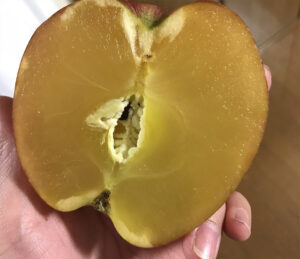Unlocking Nature’s Pharmacy: The Multifaceted Medicinal Uses of Euphorbia hirta (Asthma Plant)
Euphorbia hirta, commonly known as the asthma plant, is a widely used herb in traditional medicine systems across the globe, especially in tropical regions where it predominantly grows. Its reputation as a medicinal plant is well-established, with a variety of uses ranging from respiratory disorders to skin conditions and beyond. This article delves into the medical benefits of Euphorbia hirta, elucidating its applications and methods of use for various health issues.
1. Respiratory Ailments
Asthma
Euphorbia hirta is most renowned for its application in treating asthma, earning its common name from this particular use. The plant contains compounds that exhibit bronchodilatory effects, which help in relaxing the bronchial muscles and easing breathing in asthma patients.
How to Use: A traditional remedy involves brewing a tea from the leaves of the plant. To prepare, take a handful of dried Euphorbia hirta leaves and steep them in boiling water for about 10 minutes. Strain and drink the tea twice daily during asthma flare-ups.
Bronchitis and Cough
The herb is also effective in managing bronchitis and persistent coughs due to its expectorant properties, aiding in the expulsion of mucus from the airways.
How to Use: For bronchitis, the same tea preparation as for asthma can be used. Alternatively, a decoction made by boiling the leaves and stems in water can be consumed twice daily.
2. Gastrointestinal Disorders
Euphorbia hirta is beneficial in treating various gastrointestinal issues such as diarrhea, dysentery, and intestinal parasites due to its antimicrobial and antiparasitic properties.
How to Use: For diarrhea and dysentery, a decoction of the leaves can be taken orally. To prepare, boil a cup of water with a handful of leaves for about 10 minutes, strain, and drink the solution two to three times a day until symptoms improve.
3. Skin Conditions
The antimicrobial and anti-inflammatory properties of Euphorbia hirta make it useful in treating skin infections, wounds, and inflammatory skin conditions like eczema and acne.
How to Use: For skin ailments, a paste made from the ground leaves can be applied directly to the affected area. This can be prepared by crushing fresh leaves of Euphorbia hirta into a paste and applying it to the skin once or twice daily.
4. Urinary Tract Infections
Euphorbia hirta has been used to treat urinary tract infections (UTIs) due to its diuretic and antibacterial effects, which help flush out pathogens from the urinary system.
How to Use: A tea made from the leaves can be consumed twice daily to alleviate symptoms of UTIs. Ensure adequate hydration to aid the diuretic effect and flushing out of bacteria.
Precautions and Side Effects
While Euphorbia hirta offers numerous health benefits, it’s important to approach its use with caution. Pregnant and breastfeeding women should avoid its use as it may have adverse effects. Some individuals might experience allergic reactions or gastrointestinal discomfort. It’s crucial to consult with a healthcare provider before incorporating it into your health regimen, especially for those with existing medical conditions or those taking medication.
Conclusion
Euphorbia hirta is a versatile plant with a wide array of medicinal uses, particularly beneficial for respiratory and gastrointestinal issues, skin conditions, and UTIs. Its traditional applications have been supported by scientific research, though more studies are needed to fully understand its mechanisms and potential side effects. As with any herbal remedy, it should be used responsibly and under the guidance of a healthcare professional.



















